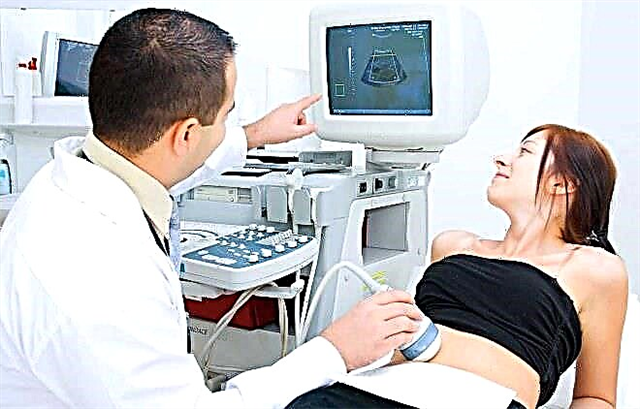Israel is a priority medical tourism destination for CIS patients when it comes to women's diseases. There are several reasons for this: the relative proximity of the territories, moderate prices, and the absence of a visa regime for many former Soviet republics. But the most weighty argument is the high level of medicine, professional doctors and the technical capabilities of medical centers. What heights gynecology has reached in Israel and what is needed for the trip, we will analyze in stages.
Features of gynecological treatment in Israel
Gynecology is a branch of medicine that deals with the physiological processes in the female body and diseases of the female reproductive system. Many gynecological diseases require immediate treatment, since delay can adversely affect the possibility of future motherhood.
Gynecology treatment in Israel is an effective effect on a very wide range of diseases:
- inflammatory (colpitis, adnexitis, endometritis, salpingitis);
- infectious, sexually transmitted infections (candidiasis, herpes, syphilis, gonorrhea, chlamydia and others);
- neoplasms of a malignant and benign nature (condylomas, polyps, fibroids, cysts, cancer, fibromas);
- endocrine (hyperprolactinemia, polycystic ovary syndrome, others);
- genetic abnormalities in the development of the genitals (two-horned uterus, doubling of the uterus, vaginal hypoplasia);
- endometriosis;
- infertility;
- climacteric syndrome;
- emergency conditions (pelvioperitonitis, extrauterine pregnancy and others).
The main symptoms of female diseases:
- profuse discharge, accompanied by itching, soreness, and foul odor, or no discharge at all (dry vaginal syndrome);
- types of pain, different in type and intensity;
- bleeding;
- disturbances in the work of adjacent organs (bladder, rectum);
- menstrual disorders.
The main reasons for the development of pathology include:
- improper location of the internal genital organs;
- abortion;
- frequent change of sexual partners;
- lack of treatment for infectious diseases;
- stress;
- ignoring the rules of personal hygiene;
- refusal of contraception;
- uncontrolled intake of antibiotics;
- unfavorable ecology.
The development of the gynecological industry in Israel is supported and funded by the state, which provides clinics with:
- constant updating of equipment;
- introduction of new survey methods;
- development of the latest treatment methods;
- equipping with innovative technologies.
Oncogynecology in Israel is a separate area. Local specialists provide high-quality diagnostics and therapy for all cancers of the pelvic organs. The technical capabilities of Israeli clinics allow us to make the most accurate diagnosis and start treating the disease in the shortest possible time.
Diagnostic methods
Admission to the Department of Gynecology in Israel begins with a doctor's consultation and comprehensive diagnostics. To make a diagnosis, the following examination methods are used:
- blood tests (general and biochemical), if necessary - to determine the hormonal background;
- ultrasound examination of the pelvic organs with a vaginal probe, ultrasound of the abdominal cavity, thyroid gland and mammary glands;
- cytological and histological studies, which reveal changes in cells;
- colposcopy - the study of the state of the external and internal genital organs using a microscope;
- MRI of the pelvic organs;
- hysteroscopy - endoscopic examination, which makes it possible to identify polyps, fibroids, cancer;
- examination to detect fungal pathology, infections, genetic diseases.
Depending on the patient's symptoms and complaints, doctors of several specializations can be involved in the examination at once - gynecologist, endocrinologist, mammologist, oncologist.
Treatment methods
Treatment of gynecological diseases in Israel is based on the principle of minimally invasiveness and maximum organ preservation. The main techniques that are used in Israeli clinics include the following:
- Tension Free Vaginal Tape - a procedure that allows you to treat urinary incontinence with minimal intervention;
- laparoscopic hysterectomy - removal of the uterus without opening the abdominal cavity;
- hysteroscopy - removal of pathological processes on the walls of the uterus;
- NOTES methods - endoscopic removal of uterine fibroids and tumors;
- SILS - an operation that is performed through a single puncture in the navel area;
- embolization of the uterine arteries - blocking the access of blood to the myomatous nodes;
- focused ultrasound - destruction of fibroids with directional ultrasound;
- IntraBeam - radiation therapy used for breast cancer;
- gynecological operations in Israel, carried out using the Da Vinci robot-assisted system.
Almost 80% of surgical interventions in gynecological clinics of the country are performed by the laparoscopic method (without incisions). This reduces the risk of postoperative complications, shortens the time spent in the clinic and the period that will be required for rehabilitation.
Reproductive gynecology
The rate of successful IVF procedures in Israel is 45%. It was Israeli specialists who became the authors of the PDG genetic study method, which is carried out before the embryos are implanted into the future mother. It allows you to exclude the appearance of various enzyme and chromosomal pathologies in the fetus.
In 2021, the country lifted the restriction on egg freezing only for medical reasons. Today any patient can perform cryopreservation. This allows a woman to give birth to a child after she undergoes treatment for vulvar leukoplakia in Israel or cancer, and also leaves the chance to become a mother at a later age.
Artificial insemination is carried out by the leading clinics of the country:
- Ichilov (Tel Aviv);
- "Rambam" (Haifa);
- “Asaf-ha-Rofe” (Tel Aviv);
- "Hadassah" (Jerusalem)
- Assuta (Tal Aviv).
Cancer treatment
The diagnosis of "cancer" is not a sentence. Many patients who chose Israeli clinics could be convinced of this. Treatment of cervical cancer in Israel is not the only disease with which foreign patients come. It successfully treats malignant tumors on the ovaries, cancer of the vulva, breast.
To combat cancerous growths, the following are used:
- surgery itself (mainly laparoscopic);
- chemotherapy;
- radiation therapy;
- immunotherapy;
- biological treatment of uterine cancer in Israel;
- gamma knife;
- hormone therapy;
- FUS-ablation (focused ultrasound).
One of the most advanced cancer screening methods is positron emission tomography (PET). It enables doctors to determine the shape and structure of a tumor, monitor its functioning, scan the entire body as a whole, and not its individual parts, and detect the appearance of metastases.
Treatment of ovarian cancer in Israel is carried out by combined methods. Most often it is chemotherapy and surgery. The process is complicated by the fact that in the early stages the disease can be asymptomatic, manifesting itself only in the form of fever, back pain. The main task of Israeli oncological surgeons is not only to remove the tumor, but also to preserve the woman's ability to have children in the future.
Treatment of uterine fibroids in Israel depends on the size of the neoplasm.Large tumors are removed with surgery. It is noteworthy that even if the patient does not plan to have children, they will still try to save her uterus. Smaller fibroids are eliminated through hormone therapy, FUS-ablation, uterine artery embolization.
The leading gynecological oncologists in Israel are:
- Professor Dan Grisaro (Sourasky Medical Center);
- Dr. Ram Eitan (Assuta clinic);
- Professor Moshe Inbar (Sourasky Medical Center);
- Professor David Schneider (Assuta clinic).
Inflammatory gynecological diseases
Clinics are successfully treating prolapse of the uterus in Israel, as well as inflammatory diseases:
- adnexitis;
- salpingitis;
- colpitis;
- endometritis.
The main method of treatment is medication. With the help of drugs, doctors manage to eliminate puffiness, block pain syndrome, and fight a viral infection. It can be suppositories, vaginal tablets, injections.
Herbal medicine is often used:
- vaginal tampons;
- douching;
- baths based on herbal preparations.
If endometrial polyps were found in parallel with the inflammatory process, doctors stop the inflammation and perform post-therapeutic hysteroscopy. Treatment of uterine polyps in Israel is reduced to their removal using an optical device that is inserted into the uterus (hysteroscope) or through laparoscopy - this is one of the most effective and at the same time gentle methods. The removed polyp is sent for pathology research.
Rehabilitation after treatment
A quick recovery after treatment is provided by the healing resources that the nature of Israel is rich in:
- fresh air;
- useful substances of the Dead Sea;
- healing mud.
All this allows you to have an anti-inflammatory and hormone-stimulating effect, activate metabolic processes, and strengthen the immune system.
Mud baths are indicated for women with inflammatory processes, fungal infections, violation of the ovulatory cycle, climacteric neuroses, infertility. The most popular resorts are "Hamey Tiberias" and "Hamat Gader". It is best to choose a health resort on the recommendation of your doctor.
Choosing a clinic
Almost all medical institutions in the country have well-equipped gynecological and reproductive departments. But there are gynecological clinics in Israel that are worth paying special attention to:
- Sourasky Medical Center in Tel Aviv. The country's leading institution, founded in 1961. It includes a general hospital, a children's clinic, a rehabilitation center, an institute of cardiology, and a maternity hospital.
- Assuta Clinic (Tel Aviv) is a network of medical institutions that includes 2 diagnostic centers, a central hospital, hospitals in several cities, an IVF center, and a rehabilitation center.
- "Herzliya MC" (Herzliya) is a multidisciplinary clinic with a gynecological department and an IVF center. The main directions: polycystic ovary, uterine fibroids, oncology, artificial insemination.
- Jerusalem Hadassah Medical Center is a university medical center that is a member of the American Hospital Association. It was here that the first child in Israel was born, conceived through artificial insemination.
- Medical Center "Rambam" (Haifa) is a public multidisciplinary hospital with an international department to serve foreign patients.
- Clinic named after H. Sheba is a state institution with 150 departments and clinics. It is a medical base for the Israeli army.
Price level
The cost of undergoing certain procedures in Israel varies depending on the region and the medical institution. Each hospital has the authority to independently set prices for services. For this reason, it is impossible to name, for example, the exact prices for the treatment of uterine fibroids in Israel.
Here are just the average figures for the country:
| Procedure | Price in USD |
|---|---|
| Comprehensive examination | from 1400 |
| Hysteroscopy | 5300-6000 |
| Colposcopy | 800-900 |
| Ultrasound | 500-690 |
| Pap test | 100 |
| Laparoscopic operations | from 10000 |
| Oncological operations | from 16000 |
The total amount is determined by the list of studies, the method of treatment, the length of stay in the hospital, the scientific degree of the attending physician (treatment with professors is always more expensive).
How to organize your trip
The organization of the trip can be entrusted to intermediaries, or you can do the preparation yourself, saving money on commissions. The procedure looks like this:
- Search for a medical institution or doctor who deals directly with your problem. If you need a gynecologist-endocrinologist in Israel, carefully study where the doctors of this specialization are received and contact the institution.
- Preparing a package of documents for sending a request. You will need a medical history, the results of previous studies, a diagnosis. All this needs to be translated into English or Hebrew. If a hospital has an international department, then the service is likely to be conducted in Russian as well.
- Receiving a response from the clinic with an approximate estimate of diagnosis and treatment.
- Making an advance payment to the account of a medical institution.
- Accommodation booking.
- Buying tickets.
If Israel maintains a visa-free regime with your state, you will not need a visa to travel.
Outcomes
Israel has everything necessary for the treatment of gynecological diseases. It uses advanced diagnostic and treatment methods. Even during surgical interventions, Israeli doctors adhere to the principle of preserving organs and reproductive function.











